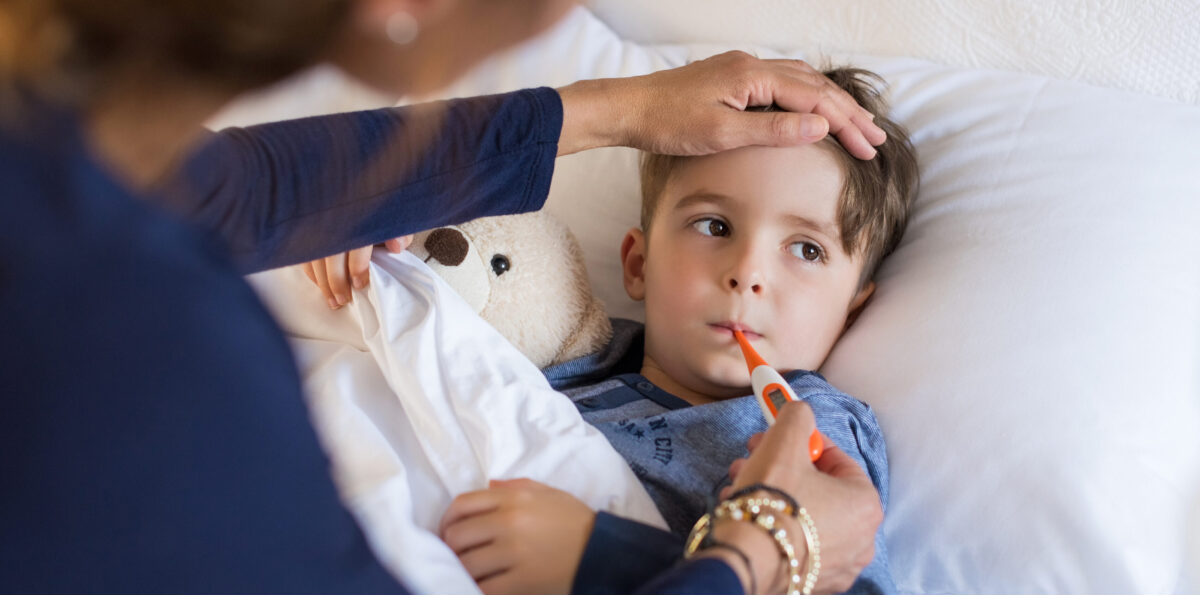Should you stay (home), or should you go (to the doctor)?

For common viruses like respiratory syncytial virus (RSV) and seasonal flu, most of the time your child’s discomfort can be eased at home and doesn’t require a doctor’s diagnosis.
“It’s completely understandable that parents are unsure what to do,” says Andrea Donalty, MD, pediatrician and medical director of Mary Bridge Children’s primary care network. “School is back in session and, combined with seasonal variations in circulating viruses, children are back in close proximity with each other which can increase chances of virus transmission.”
Treating your child’s symptoms at home
For colds, flu and RSV, there are no medicines that will eliminate the viruses, but there are ways to help your child feel better as their body fights off the infection.
- Do this: Increase hydration. For children under 1 year of age, breastmilk or formula are the best options for hydration. For children over 1 year of age, besides water, juice, soup, popsicles and milk, water-dense fruits and vegetables like watermelon are another way get additional liquids into your child’s system. Caution: If your child doesn’t have their appetite, be sure there are salts and sugars in the fluids they’re consuming.
- Do this: Treat pain with over-the-counter pain relievers like acetaminophen or ibuprofen, which help reduce pain, fevers and other symptoms. Caution: Talk to your pediatrician before giving medicine to children under 6 months old.
- Do this: Clear nasal congestion with a “snot sucker” or bulb syringe and saline drops. This can be helpful especially for younger children who have difficulty blowing their nose. Caution: Be careful not to over-suction your child’s nose as this can cause additional irritation.
- Do this: Clear congestion with steam. Both cool mist humidifiers and steam baths can provide congestion relief. Caution: Do not use vaporizers as they pose burn risks.
Getting medical attention
Dr. Donalty advises parents to go with their gut when it comes to questioning if their child needs medical attention or not. “Those parental instincts kick in and more times than not, they’re correct,” she says. “Never hesitate to call your pediatrician for advice, and always be on the alert if your child shows signs of advanced illness.”
What are signs of advanced illness that could be serious?
Breathing trouble
- Rapid breaths
- Stomach breathing
- Grunting
- Flaring nostrils
- Blue lips or skin
- Difficulty breathing and drinking simultaneously
- Lethargy
Dehydration
- Decrease in wet diapers
- Decrease in urine output
- Dry mouth
- Crying without tears
- Lethargy
Pain and secondary infections
- Complaints of pain in ears, chest or sinuses
- Symptoms of ear infection or pneumonia
How long will this last?
“This is still early for RSV and flu, so we’re not out of the woods yet,” says Dr. Donalty. “I urge parents to get the whole family vaccinated against influenza, as well as make sure your child is up to date on their routine vaccination schedules.”
In addition to preventative measures like vaccination and good hygiene, Dr. Donalty also urges parents and caregivers to not panic. “When in doubt, call your pediatrician’s office — that’s what we’re here for. This will be a long winter, but it won’t last forever.”
Some of this story’s content is adapted from this tip of the week from CHOP.